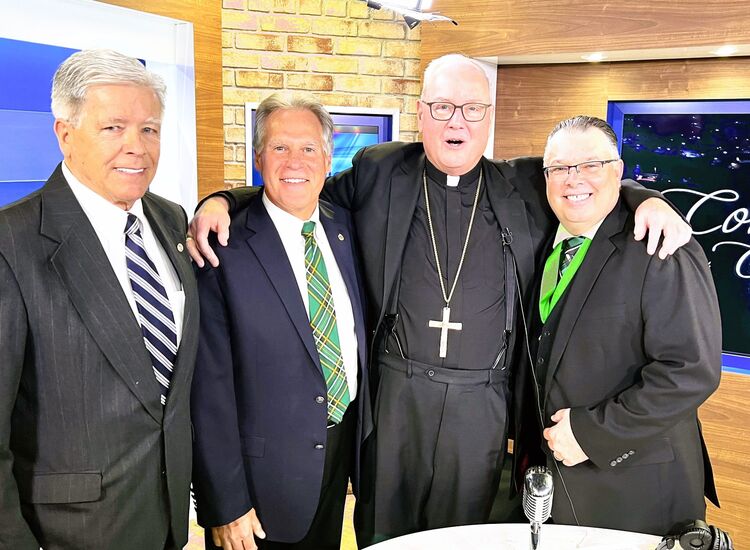Musical analysis is intertwined with biography in a highly effective way in "Trad Nation."
Traditional Music / By Daniel Neely
Over the last few years – and in this past year especially – we have seen great social upheaval and a remarkable awakening to the struggles of marginalized communities. The world of Irish traditional music has been part of this growing awareness, particularly through the FairPlé and Mise Fosta movements, but a new book by Tes Slominski called “Trad Nation: Gender, Sexuality, and Race in Irish Traditional Music” takes things in a dramatic new direction. It is an excellent and important academic work work that fans of traditional music will be interested in reading.
Here, Slominski, “[a] fiddler in the Irish vernacular music tradition and a queer white woman brought up in the rural South of the United States,” has two stated goals, the first is to examine musicians and ideas that have not been significant parts of existing scholarship into traditional music, and the second, to voice support for the separation of Irish traditional music from Irish ethnic nationalism.
This latter point is particularly crucial because although it is made specifically in reference to Irish music, its relevance is plain and broad. “Ethnic nationalism,” she argues, “is at the root of sexism, heterosexism, and racism in Irish traditional music performance and its reception”. It’s what has governed the behaviors, sounds, and bodily practices that construct “authenticity” and “Irishness” since the Gaelic revival, but it has rooted the interpretation of vernacular music in general for centuries.
Three fundamental questions frame the pursuit of Slominski’s goals. What do dominant systems of sex, gender, and ethnicity exclude? How do societies rely on these systems and exclusions to reproduce national identity? And finally, how do we celebrate cultural traditions that are understood as national while also dismantling the discriminatory practices that give ethnic nationalism its energy?
To answer these questions, Slominski “[presents] the stories of women; lesbian, gay, bisexual, transgender, and queer (LGBTQ+) musicians; and musicians of color Irish traditional music” as a way “to find new tools for understanding music making and identity formation outside the parameters of embodied ethnicity that enclose national and cultural belonging.” By looking at “nonnormative” musicians as case studies, she is able to show how exclusions rooted in ethnic nationalism are pervasive and often go unnoticed.
The book is divided into five chapters. The first looks at how ideas about gender, sexuality, and race were articulated in 20th century Irish nationalism. There, she considers the idea of representation, exploring the personification of Ireland both as-woman and as-mother in poetry and song, before an examination of several women profiled in the work of Francis O’Neill. Slominski proposes several categories to describe the activities of women traditional musicians, and draws an interesting parallel to how these representations reflected earlier idealizations, before contrasting them with Mary Kilcar and Lucy Farr, two musicians whose lives didn’t fit neatly into a nationalist narrative.
Her second chapter is a case study that examines the life of fiddler and dancer Treasa Ní Ailpín, from County Limerick. In her youth, Ní Ailpín (1894-1983) was a well-known and respected dancer and musician, who in addition to playing traditional music also participated in nationalist celebrations of Irish cultural identity, an activity often assumed to have been performed by “upper-class urban classical violinists.” Musical analysis is intertwined with biography in a highly effective way and leads us to ask what, indeed, the term “traditional” should mean.
In chapter three, Slominski talks about the life of Sliabh Luachra fiddle player Julia Clifford. Clifford is a fascinating character, and the narrative Slominski offers here is “part biography and part analysis,” that not only tells Clifford’s story in careful detail but reorients how we think about biography itself. Slominski notes a tendency in biography to emphasize and erase minoritized identities, and find a path here (that includes musical analysis) that ultimately illuminates the life of this influential musician.
Chapter four looks at the concept of “the music itself,” or the notion that one should “pay attention to text or sound rather than to the social, economic, or historical circumstances that situate a performance.” Here, Slominski argues that this imperative has long been used to silence social critique. Instead, she suggests looking at “the music itself” in a way that sees it as a part of the music-making process. In doing so, she gets at the concept of flow, or “a state of ‘optimal experience’ characterized by enjoyable concentration in activities that combine high challenge and high skill,” exploring how marginalization and discrimination affect how people experience such states.
Chapter five, arguably the book’s most consequential, examines gender, sexuality, and race/ethnicity in traditional music more broadly. Slominski begins by focusing in on some of the challenges queer and women musicians and musicians of color experience in the traditional music scene, such as feeling pressured to be silent about who they are, the ability to either pass or disidentify as Irish, color-based gatekeeping, and the chronic disbelief of non-Irish and non-normative involvement in the music. This final chapter closes with a call not to assimilation, but for transformation.
“Trad Nation” is an excellent work of musicology that will prove to be of enduring significance. Because it resonates so deeply with today’s political moment, I expect it’ll find a welcome audience with engaged musicians and university-level students of Irish music the world over. But there will also be many who will find Slominski’s findings very challenging. I think not only of those who hold conservative ideas about how “tradition” (and perhaps musicology) is supposed to work, but also of people sympathetic to the struggles of women and LGBTQ+ musicians and musicians of color who might not immediately realize how widespread and engrained the discourse of ethnic nationalism is in their own thinking. (“Why doesn’t she stick to the music itself?” I might imagine someone saying.) But that’s okay – ultimately, the conversations this book will inspire are important and need to happen and at the end of the day the music will be better for it. “Trad Nation” is published by Wesleyan University Press (2020, www.wesleyan.edu) and easily available through your favorite bookseller.








